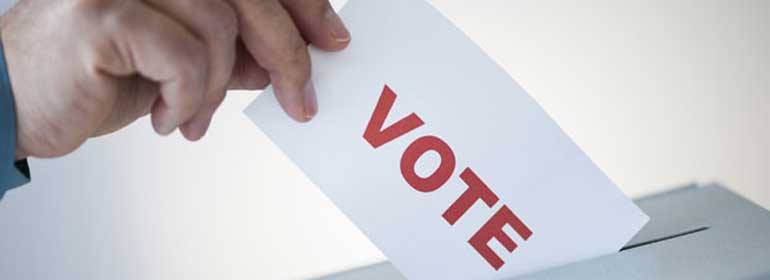The latest poll on whether the Irish people will vote for same-sex marriage in the forthcoming referendum may be overwhelmingly positive, but we need to convince the undecided that a Yes vote will be good for business.
A new IPSOS MRBI poll for the Irish Times has provided some interesting and encouraging news about public opinions on the marriage equality referendum. The positive news is a general increase in support for same-sex marriage. 71 per cent of respondents said they would vote Yes in the referendum and only 17 per cent No. A further nine per cent had no opinion or were uncertain and three per cent refused to respond.
When the undecided are removed from the stats, the Yes vote is 81 per cent, while the No vote is 19 per cent .This is a large increase from the previous polling in October which had 76 per cent Yes, 24 per cent No.
The distribution of opinions by political party affiliation is interesting too. 80 per cent of Labour supporters said they would vote Yes. Sinn Féin supporters were also highly represented in the Yes camp. Despite recent high profile visits to bars (or stunts depending on your opinion) by An Taoiseach, Fine Gael voters were less inclined towards marriage equality, but it was perhaps unsurprising that Fianna Fáil voters were at the very bottom with only 60 per cent saying they would vote Yes.
All the major parties are supporting a Yes vote, in principal, for the referendum. The canny politicians are aware that it is election suicide to come across as either homophobic or far right. That’s a great victory in itself. The Irish are a progressive, and relatively youthful, demographic and recent massive disillusionment with established political parties has thankfully not had the radicalising effects it has had in places like Greece or even the UK. The likes of Fianna Fáil and Fine Gael are being dragged kicking and screaming in to the 21st century and clearly know which way the wind is blowing. There is a growing consciousness that even if they don’t entirely support or understand the gays, they know we are a highly organised, interconnected and well-informed lobby, which cannot be ignored and must be courted.
As for the No voters and the undecided, we need to accept a few unpleasant truths. Firstly, no matter how moral, ethical or intrinsically righteous the cause, there will be some people who will never change their opinion. They have made up their minds by closing them. No matter how sincerely or eloquently we put our case, we are wasting our time with them.
Of course, that is their right. We live in a democracy, and no matter how offensive it may be to have to beg strangers for a right they themselves enjoy and take for granted, this is the situation we find ourselves in. We need to toughen up, stop taking it personally and be pragmatic in our approach to the floater voters.
In politics, when attempting to win votes, it all comes down to one thing: what’s in it for the voter? We need their help; this is the reality. But although it’s apparent to us and to any decent human being that letting other human beings form loving families is a good thing, we shouldn’t be appealing to the mercy or compassion of the undecided. Instead we need to appeal to their self-interest. We need to remind them that not only will our freedom to marry not affect their marriages, but that in truth it will benefit all of society.
The easiest way to articulate the benefits is to point to the economic and employment potential of marriage equality in Ireland. In countries where gay marriage has been legalised additional tax revenue is rolling into state coffers. And this isn’t even counting the business for associated industries, which leads to job creation.
Such information is useful because the benefits of same-sex marriage for the Irish economy may just be the lynchpin for undecided voters. For anyone who’s ever helped a friend or family member arrange a wedding you will appreciate the sheer cost and scale, the vast multitude of different businesses and services involved, and the majority of these will be Irish businesses.
Forget about the No voters. The nine per cent floaters and three per cent who refused to respond are the ones we need to educate about the economic benefits. If they were concerned with morality or empathy, then they wouldn’t be undecided.
Also let’s not forget about our 7 per cent who say they’ll vote Yes. Will they actually vote Yes on the day? While we can be optimistic about the overall positive polls, we cannot afford to take our feet off the pedal.
© 2014 GCN (Gay Community News). All rights reserved.
